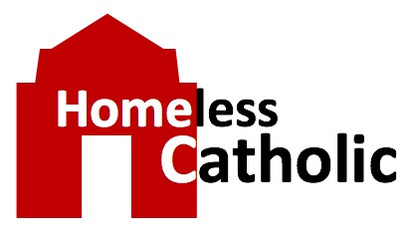What does the Catechism say about oaths?
The Church requires the taking of oaths: Before a bishop is ordained or takes formal possession of his diocese, he must make a profession of faith and take an oath of fidelity to the Holy Father (Code of Canon Law, #381).
The Church's interpretation of the Sermon on the Mount is that Jesus did not exclude oaths made “for grave and right reasons” (#2153), but rather condemned false and frivolous oaths. The Catechism underscores the point that since “taking an oath is to take God as a witness to what one is affirming”, a false oath therefore asks God to become a witness to a lie, which is an act of blasphemy.
Step up and be brave
By Tim Trainor
http://www.usccb.org/bible/readings/061320.cfm
1 Kings 19:19-21
Matthew 5:33-37
The Gospel reading that we will be looking at today, occurs in the last portion of the Sermon on the Mount. The passage we have just read, on the surface, to me initially appeared to be about PROPER oath taking and vows. How about you? I found 3 related items cited by our Gospel reading that we will look at in addition to the reading itself. Then, to better grasp this teaching we will ask ourselves some Questions:
1. Who could these conversations or oath/vows be between?
2. What could be the setting/subject of these YES/NO type conversations?
Now lets see how our viewpoints & perceptions change and maybe even IF some LEARNING/GROWTH has OCCURRED!
First, based just on the Gospel reading itself
The subject of oaths and vows may seem a little anti-climactic after all the discussions which preceeds it in Matthew 5:21-32, which are about murder, adultery, eye-plucking and hand-lopping off, etc - much of which is directed at the Scribes and Pharisees who had missed the spirit of the Law, in their teachings & thus passed on perverted off target teachings to the Jewish people! The issue Jesus is asking us to address today, OATHS and VOWS, goes to the very core, however, of a person’s character – to the heart of what it means to live as a Jew or Christian, that is - as a child of God. As His Child, we ought to display or witness to one of His MAJOR attributes: TRUTHFULNESS!
At the time of our Lord, the Scribes and Pharisees had maneuvered around the strict precepts regarding oaths. For instance: if one actually invoked the Lord to bear witness to the truth, then that oath was absolute. However, if one invoked the temple, Heaven, earth, one’s head, or something else, then the oath was less binding and could even be broken.
Clearly, our Lord rejected these legal hair-splitting & the verbal gymnastics since the Lord Himself is Truth.
Well, have things changed for us?
I think today we live in a culture in which the truth is often the very first casualty of any interactions between us. We have an incredibly elaborate system of lawyers and contracts and notaries and binding signatures to ensure that we are who we say we are - or - we will do what we promise to do. And what's
interesting to me is - none of it seems to makes people, in our day and age, any more truthful or trustworthy!
Could it be the case that in spite of all the lawyering and signature witnessing - people are STILL maneuvering & selfishly thinking: 'I will stick to this deal or go along with this WHILE I perceive that it continues to be in MY best interest'?
So far, my take on who & what Jesus is aiming at, based on our 2 questions is:
1. Conversations or oath/vows are mainly between Scribes and Pharisees.
2. Their 'hair-splitting' techniques are things that we should not copy.
Second, based on James' Echo of Jesus Words
I think that the Apostle James BETTER captures the Lord's intented message to us when he appears to echo the words of our Lord in his epistle, BUT he puts special emphasis on this command by introducing it with the words, “above all", meaning 'Be Sure To Get This', plus, adds the family like word "Brethren".
Now consider this short passage from James 5:12: "But above all, my brethren, do not swear, either by heaven or by earth or with any other oath; but let your yes be yes, and your no, no; so that you may not fall under judgment."
So - Lets now re-examine our answers and see if we can spot any new viewpoint or change in perception our reflection on this teaching started.
Through James I think we learn three things:
1. We are reminded by the words "fall under judgment" that oath-taking because of a sinful weakness in the human race, namely, the tendency to lie and break the 8th Commandant.
2. Jesus demands especially of his disciples a truthful speaking from the HEART to God and other people (especially fellow Believers) thus makes oaths unnecessary.
3. Sorry but no deception or Gaming allowed between we OMG members!
Third, what does the Catechism say about this subject?
The Church requires the taking of oaths: Before a bishop is ordained or takes formal possession of his diocese, he must make a profession of faith and take an oath of fidelity to the Holy Father (Code of Canon Law, #381).
The Church's interpretation of the Sermon on the Mount is that Jesus did not exclude oaths made “for grave and right reasons” (#2153), but rather condemned false and frivolous oaths. The Catechism underscores the point that since “taking an oath is to take God as a witness to what one is affirming”, a false oath therefore asks God to become a witness to a lie, which is an act of blasphemy.
Thus further explaining James' words "that you may not fall under judgment"! God’s presence and His truthfulness must always be respected; otherwise, per the Catechism, we mock Him.
Has your perspective been broadened by our look at the Catechism to include:
1. The fact that the Church requires the taking of oaths in certain important situations.
2. What is Blasphemy, and why it should be avoided?
For our last take, consider a good example from Pope Francis
The contrast between the “no” of man in the Garden of Eden and the “yes” of Mary at the Annunciation was the heart of Pope Francis’ message for the Solemnity of the Immaculate Conception, back in 2016.
His comments were: When Mary said “I am the handmaid of the Lord” in response to the news that she will become the Mother of God, she doesn’t say: “OK, I will try to do the will of God" or "I might be available then I’ll see,” the Pope said. "Hers was a full yes, without conditions,” he said, noting that at times, instead of imitating this attitude, “we are experts in the ‘half-yes:’ we are good at pretending not to understand what God wants and consciousness suggests.”
We can also be “cunning” and avoid saying “a true and firm ‘no’ to God” by making excuses, such as “I can’t,” or “‘not today, but tomorrow...tomorrow I will be better, tomorrow I will pray, I will do good, tomorrow.”
However, by doing this “we close the door to good, and evil profits from these missing ‘yeses,’” Francis said, noting that each one of us carries around “a collection” of these missed yeses inside.
Each full and unreserved “yes” we say to God is the beginning of a new story, he said. Saying yes to God “is truly the beginning of something new and original. But not so sin, not so. Sin makes us old inside.”
"Have you thought about this? That sin makes you age inside? It makes you age right away!” he said, adding that “every yes to God BEGINS a story of salvation for us and for others".
So, what has the Pope's remarks added to our discussion? I think the following:
1. In addition to having a conversation with God, you can have one with Sin!
2. The best "YES" to God example that we have been given to follow is Mary's "yes" at the Annunciation.
3. Saying "yes" to Sin makes us old inside - while - "yes" to God is the beginning of a new salvation like story for us and our Brethren.
I think that the Pope's remarks wrap up nicely our reflection today. I think that each of us needs to step up and be more brave with our YESES to God and thus begin more Grace Filled Stories!

